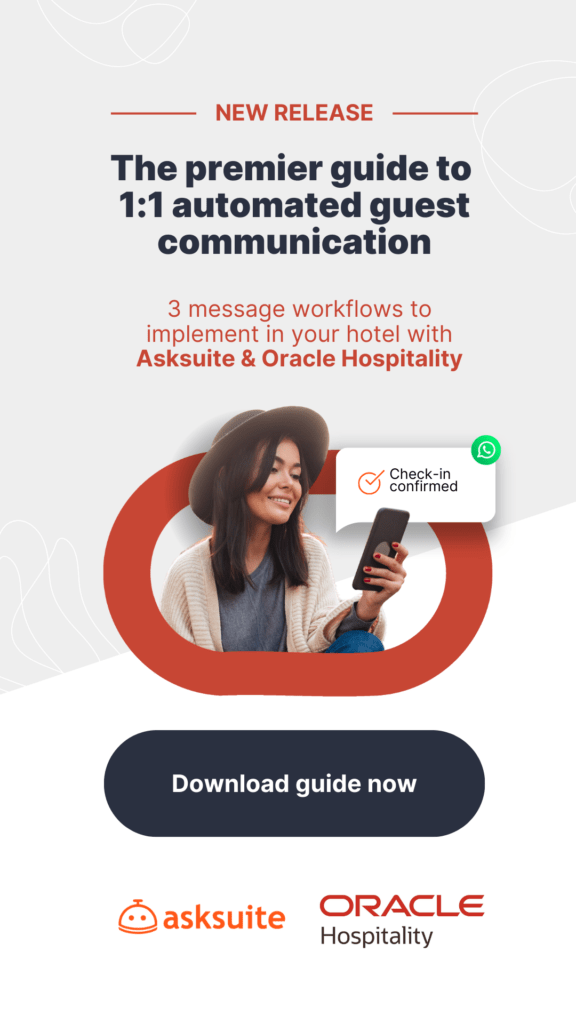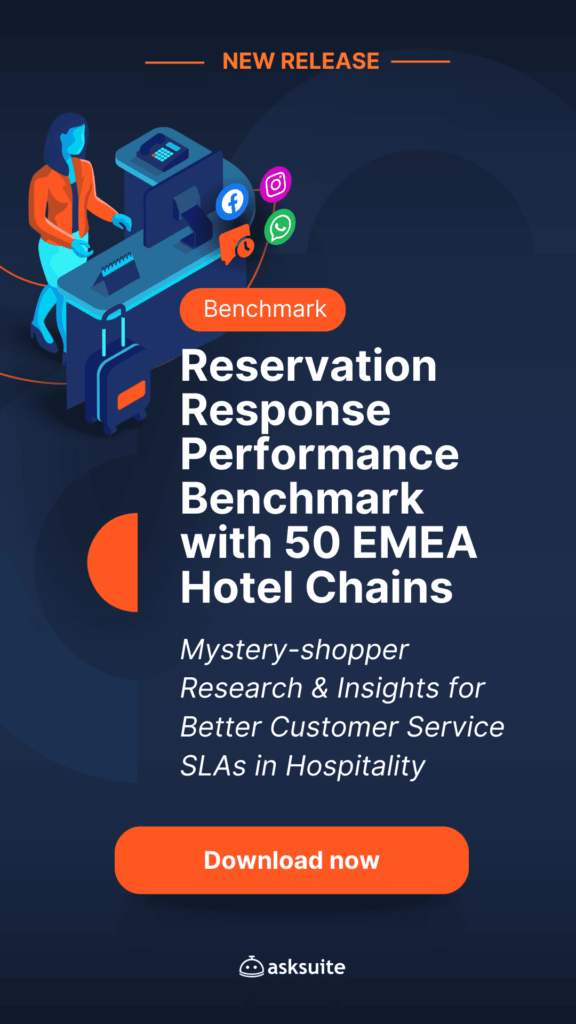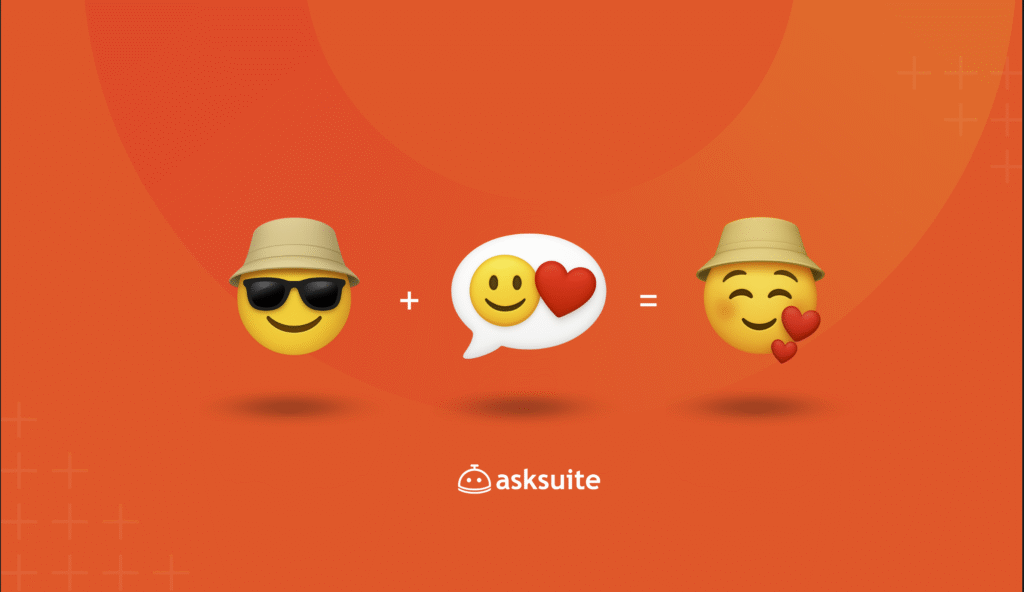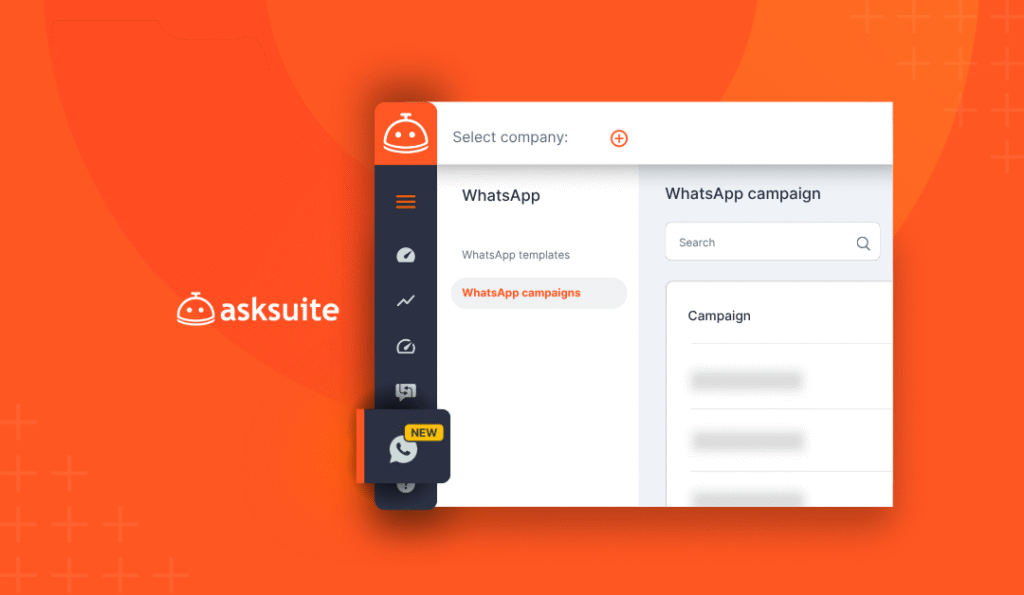According to PwC, 70% of consumers now expect companies to offer self-service options, and the travel and hospitality sector ranks among the top industries adopting AI to meet this demand. For hotel chains and resorts managing high service volumes across multiple properties, the pressure to respond faster — without sacrificing quality — has made automated customer service not just an operational upgrade, but a financial necessity.
Manual processes in communication, especially at scale, introduce hidden costs: missed direct booking opportunities, staff overload, and fragmented service experiences. While many hotels still rely on the traditional reservation playbook to handle a growing volume of inquiries, others are investing in automated customer service as a way to regain control, cut response times, and unlock new revenue streams.
But automation in hospitality isn’t just about speed. It’s about making every interaction more intelligent, consistent, and profitable — letting human agents handle more complex negotiations. Below, we explore the top 5 proven advantages of automated customer service for hotels and resorts — backed by real results.
Let’s check it out!
What Is Automated Customer Service in Hospitality?
Automated customer service in hospitality refers to the use of AI-powered tools and workflows to handle routine interactions across communication channels — including websites, WhatsApp, Instagram, and direct booking platforms. These systems respond in real time, resolve FAQs, assist with bookings, and escalate complex cases to human agents when necessary.
Unlike the old-fashioned service models that rely solely on staff availability, automation ensures continuity, accuracy, and scalability. Asksuite’s AI Reservation Agent, for instance, operates 24/7 in multiple languages and integrates with booking engines and property management systems (PMS), enabling a seamless guest journey from inquiry to reservation.
A recent Skift Research report found that 54% of hotel executives plan to increase investments in AI technologies specifically for communication and personalization purposes. This isn’t about replacing staff — it’s about giving teams the ability to focus on strategic tasks while AI handles the repetitive and high-volume front lines.
For large hotel groups managing dozens of contact points, automation provides a centralized, intelligent layer that unifies service delivery, regardless of location or language — all while keeping performance measurable.
What are the top 5 advantages of automated customer service for hotels
Before exploring in detail some practical examples, it’s essential to understand that automation isn’t just a tech upgrade — it’s a strategic move that directly impacts operational efficiency, guest satisfaction, and revenue. Hotels that adopt automated customer service aren’t simply responding faster; they’re transforming how they engage with travelers at every stage of the journey.
Here are the 5 key advantages that prove automation is no longer optional — it’s a competitive advantage.
1. 24/7 Availability Without Overloading Reservation Teams
Travelers don’t operate on business hours, but your reservation team might. Automated customer service bridges this gap by delivering 24/7 availability without requiring your staff to be constantly online.
With AI-powered solutions like AI Reservation Agents, hotels can handle the majority of routine inquiries automatically — including availability checks, cancellation policies, rate details, and booking assistance. This removes the pressure from reservation teams, allowing them to focus on high-value tasks such as upselling, group bookings, and complex guest requests.
Real story: At Galgorm Resort, the AI solution led to a surge in accommodation inquiries, accounting for over 33% of all chats during an entire quarter. This shift to automated support freed up the reservation team to focus on delivering exceptional, personalized service to their guests. Read the full case study here.
2. Instant Responses Improve Guest Satisfaction
According to a Zendesk report, 60% of customers say fast response time is the most important part of good service. In hospitality, where inquiries can directly translate into bookings, every second counts.
Automated customer service ensures guests receive instant, accurate responses across channels like WhatsApp, Instagram, and web chat. While meeting expectations, customer satisfaction scores (CSAT), review ratings, and loyalty improve as well.
Real story: After implementing Asksuite’s AI Reservation Agent, 4R Hotels — a group operating eight properties — achieved remarkable results. Only 4.2% of interactions required human intervention, dramatically reducing the workload for their reservation teams. Even more impressive, over 54% of guest interactions were handled outside business hours, fully managed by the AI agent. In just seven months, the hotel group generated a 17x ROI from direct bookings alone and over $53,000 in group sales opportunities, proving that instant, automated responses drive both guest satisfaction and revenue. Read the full case study here.
3. Increased Direct Bookings via Smart Conversations
Beyond answering questions, modern AI doesn’t just serve — it sells. With tools like AskFlow, hotels can automate revenue-generating conversations:
- Cart recovery: Reach travelers who started a booking but didn’t finish.
- Upselling: Offer room upgrades, packages, or early check-in.
- Pre-arrival engagement: Confirm arrival details and offer additional services.
By delivering timely, contextual responses, hotels reduce dependence on OTAs and capture more direct bookings—with higher margins.
Oracle Hospitality and Asksuite developed the premiere guide to 1:1 automated guest communication. You’ll access 3 ready-to-implement workflows for free! Guarantee your copy and change the way you interact with guests.

4. Data-Driven Insights and SLA Monitoring
Automation isn’t just about speed — it’s also about real-time data visibility to make the smartest decisions. With Asksuite’s SLA Dashboard and Sales Performance, hotel managers can track:
- Response times by channel and agent
- Booking conversion rates
- SLA compliance and missed opportunities
These insights enable teams to refine processes, reallocate resources, and improve both service delivery and sales performance.
Want to know more about real-time data and how it affects your business? Check out the exclusive blogpost on the Sales Performance Dashboard and get to know how data analytics is a game-changer for hotels.
5. Omnichannel Consistency Across Communication Channels
Modern travelers expect seamless communication across their preferred channels—whether it’s WhatsApp, Instagram, website chat, or Facebook Messenger.
Automated customer service platforms centralize all interactions into one dashboard, ensuring no message is missed and every response is consistent in tone, accuracy, and professionalism. This eliminates silos between channels, reduces response errors, and provides a unified guest experience.
Use-case example: A traveler asking about room availability on WhatsApp can continue the conversation via web chat without repeating themselves—because all agents have access to the full chat history, that’s synced. Tools like LiveChat 2.0 allow uninterrupted traveler communication with a complete view that’s user-friendly.
Automation in customer service isn’t the future — it’s the standard
Automated customer service doesn’t replace the human touch, it amplifies it. From instant responses to omnichannel consistency, automation empowers hotel teams to focus on what truly matters: delivering exceptional guest experiences while maximizing revenue.
The benefits are clear — it lifts direct bookings, lowers operational strain, and unlocks valuable performance insights. With hospitality-tailored tech like AskFlow, automation goes beyond reactive service. It proactively engages guests throughout their journey, recovering lost bookings, driving upsells, and creating hassle-free communication experiences.
Ready to see how automation transforms your guest service and revenue?
Request a demo today and discover how Asksuite simplifies communication between your hotel and travelers — in the smart way.
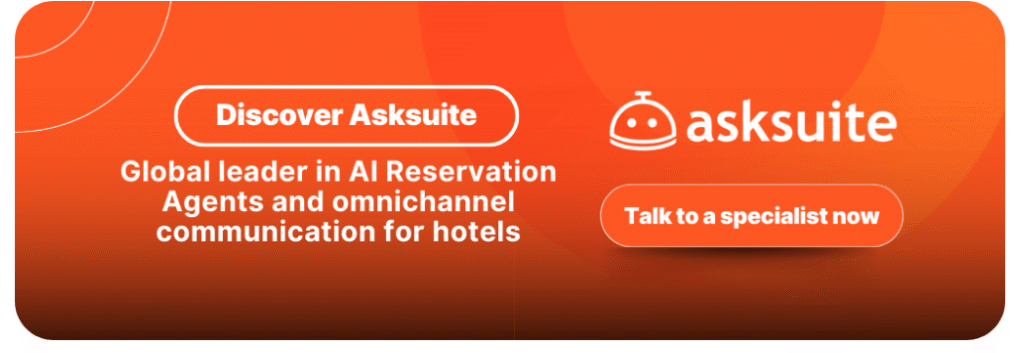
This blog post was originally written on July 24, 2019 by Paula Carreirão and updated on June 27, 2025 by Maria Carolina Rosa.

